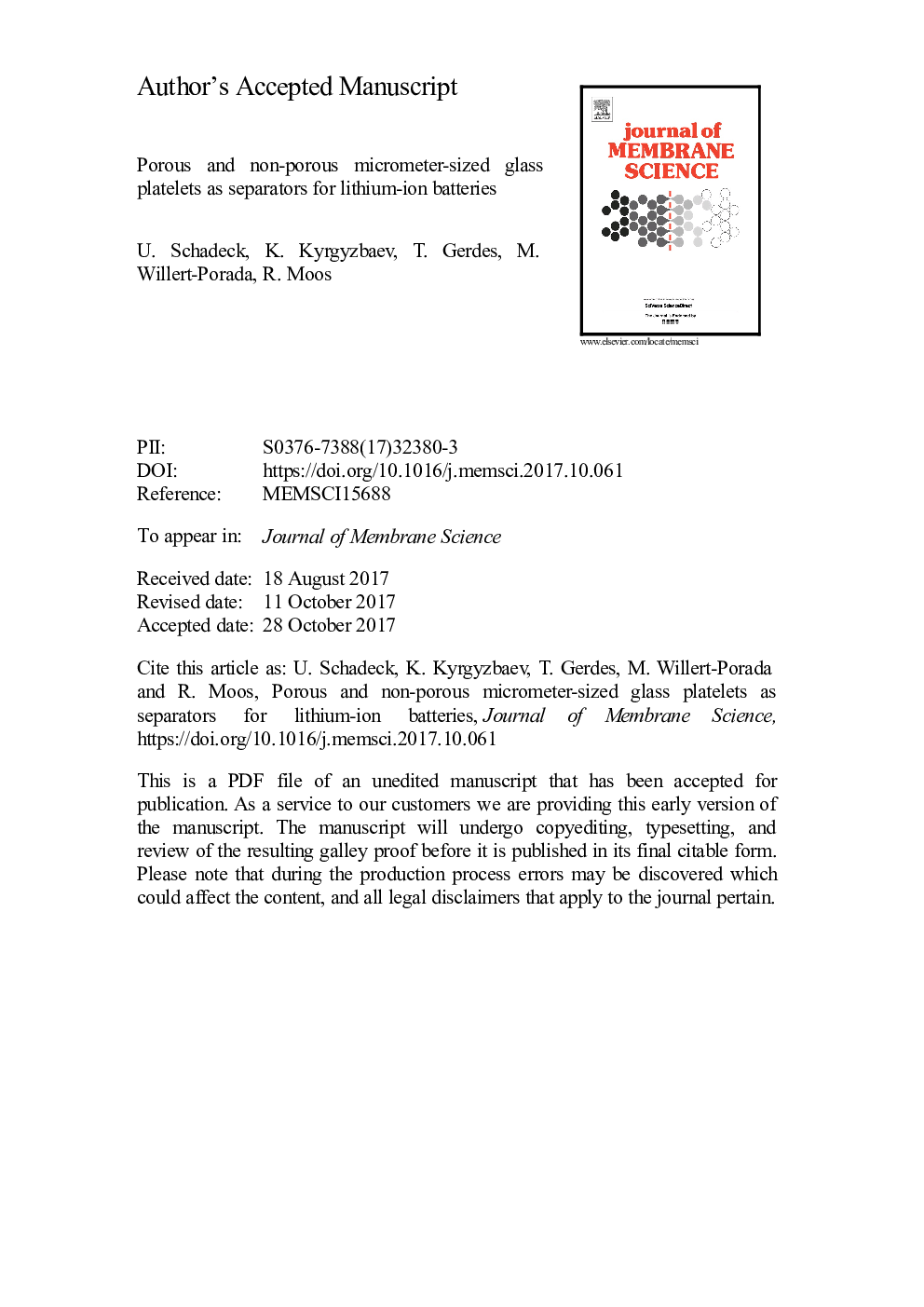| Article ID | Journal | Published Year | Pages | File Type |
|---|---|---|---|---|
| 7020173 | Journal of Membrane Science | 2018 | 25 Pages |
Abstract
Custom-made porous and non-porous micrometer-sized glass platelets made of phase-separating sodium borosilicate glass are used as a new type of separator for lithium-ion batteries with liquid electrolytes as a high-temperature stable alternative for polymer-based separators. The production process of glass platelets as well as the preparation of porous glass platelets by the so-called VYCOR®-process is described. The influence of the platelet morphology on the ionic conductivity in a non-aqueous battery electrolyte is shown. Porous glass platelets with a porosity of 52% show an ionic conductivity of 5.5Â mSÂ cmâ1 in a standard non-aqueous lithium-ion battery electrolyte. The battery performance of porous and non-porous glass platelets as a separator is tested in a graphite/lithium iron phosphate full-cell configuration and is compared to state-of-the-art polymer-based separators. Charge/discharge tests are performed at different current rates. The results clearly show that glass platelets perform excellently with high charge/discharge currents up to a 10Â C rate and capacity retention at a 1Â C rate compared to polymer based separators.
Keywords
Related Topics
Physical Sciences and Engineering
Chemical Engineering
Filtration and Separation
Authors
U. Schadeck, K. Kyrgyzbaev, T. Gerdes, M. Willert-Porada, R. Moos,
